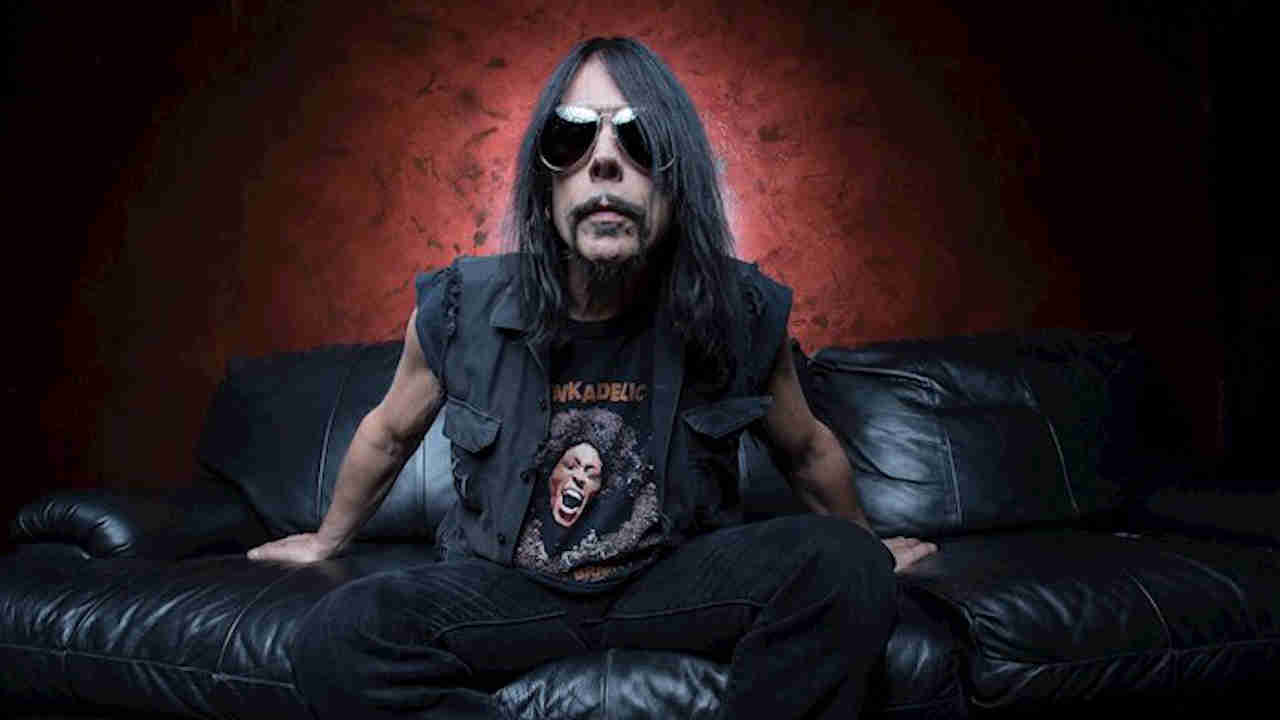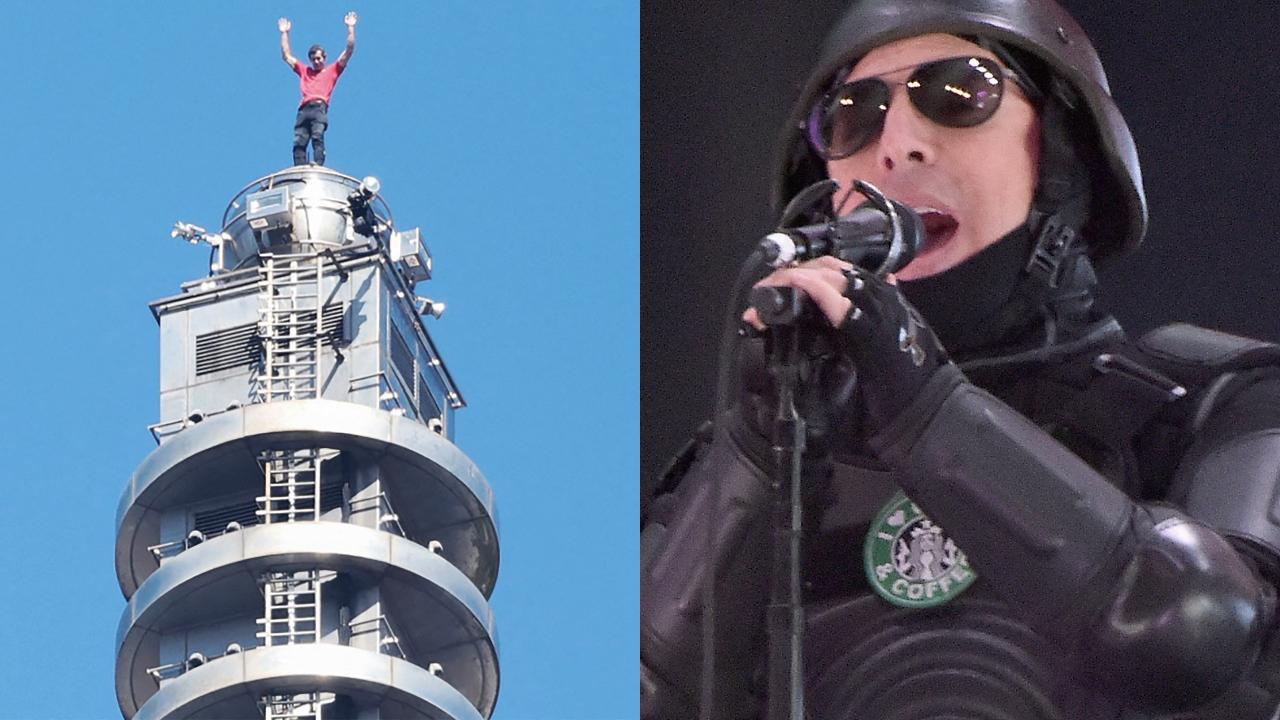Monster Magnet’s Dave Wyndorf: “Was rock’n’roll better in the 70s? Yeah. People put more effort into it”
As Monster Magnet gear up to release new covers album A Better Dystopia, mainman Dave Wyndorf dives into a world of psychedelic madness, lost heroes and melting brains

A piece of Dave Wyndorf’s heart will forever be 1971. The Monster Magnet frontman had was just enterin g his teens when rock’n’roll got really freaky. “It was this era when flower power was gone, but psychedelia was still alive - and that psychedelia was bleeding into hard rock,” says Wyndorf.
Monster Magnet’s new covers album, A Better Dystopia, is a spiral-eyed celebration of that very period and its aftermath. Focussing mainly on the years 1968-1972 (with a few later outliers), it finds Wyndorf and his bandmates Magnet-izing songs by cult heroes such as Hawkwind, The Pretty Things and 80s garage punks The Scientists, as well as long-forgotten hard rock, garage punk and psych footsoldiers like Poobah, Table Scraps and Morgen. “They mention their brain a lot,” says Wyndorf of the bands who inspired them. “Y’know, [wide-eyed freak impersonation], ‘My brain!!!’ I love that stuff.”

A Better Dystopia feels like more than just a nostalgia trip. It’s like you’re cheerleading for a bunch of bands who have been under the radar for the last 50 years.
Hell, they never even got on the radar. This is from that deep, freaky period in when FM rock was truly freeform. There were bands thinking that the FM thing would last forever, and there'd be some way to float into this really cool scene. Of course, the FM rock thing got really uncool around '73, and it turned more into regular AM, but there was a real crazy, freaky time period back then, and I loved it because that's when I was a little kid.
What do all the bands you’re covering on the album have in common?
Cool tunes, to be sure. I didn’t want drippy psyche, I wanted hard rock psyche – stuff where you could turn up the drums and bass. And it was all about that late 60s, early 70s attitude, that one-man-against-the-world sort of thing. The less I can understand the lyrics, the better. I love it when bands are, like, “We know what we’re talking about - if you don’t, that’s on you.”
Were you that kid dropping acid in your bedroom and listening to Hawkwind or whoever?
Sign up below to get the latest from Metal Hammer, plus exclusive special offers, direct to your inbox!
Yeah, and I was a singular, loner record buyer. I used to tell people I got things from my older brother back when I was trying to hide my age, but I didn’t. It was just me doing it on my own. I did the same thing with books and magazines and comics.
Back then you usually found about records after they were out, not before – they would just appear in the store. So you’d go in by yourself as a 12-year-old, looking at the cover: “That looks cool.” Then you’d look at the song titles and the instrumentation: “OK, there’s no keyboard player, this might be louder. Is there a bald guy in the band? A bald guy might mean they’re jazz.” All these crazy fucking things.
I remember buying In Search Of Space by Hawkwind and Hard Attack by Dust, as soon as they arrived in the store. I remember looking at that Hawkwind cover, In Search Of Space, thinking, “If this isn't the greatest album I've ever heard, then fuck me…” I've never known an album’s sound fit the cover so well.
Hawkwind are probably the most famous band you cover on A Better Dystopia. But there are some real obscurities. The first single from the album was a cover of Mr Destroyer by Poobah. Who the hell were Poobah?
They were a band from the Midwest who were out there with a bunch of other bands that were trying to imitate British hard rock thing, Zeppelin, Sabbath. They made a record, or maybe some sort of demo, in the early 70s for a major, but they turned it down, so it never got any release outside the local area, which is why no one ever heard it.
On the actual Poobah record [Let Me In], there’s not a lot of songs that reflect the Mr Destroyer vibe - I’m guessing they were, like, “Here’s the one that will rock the kids at the end of the show.” I never heard it until, like, 2003, so it was like finding a great lost Sabbath song or something. It’s a great song. How can you not like something called Mr Destroyer? I told the guys, “We have to do this one.” I’m jealous that I didn't write it.
There’s a kind heroic romance to bands like that, who were doomed to fail but still did it anyway…
I don’t think they saw it as romantic. I talked to the guy [Poobah frontman Jim Gustafson], he’s, like, 70-something years old and he still plays, and he was, like, “Well, I didn’t think anything of it, cos we were young and it was just another riff in the big pile of riffs.” It’s a typical showbiz story.
Did you see any these bands played live?
I got to see them a couple of years later, in 1973, and I swear that’s what started me down this path. I'm standing there literally a couple of feet from [dancer] Stacia, this beautiful, giant-boobed, naked woman painted with blacklight paint and [saxophonist] Nik Turner, with a microphone in his sax, playing through a wah-wah pedal. Do you know what that sounds like to a 15-year-old old? It sounds like bloody hell. It just completely fucked everyone’s mind. It was more punk rock than punk rock.
When you were going to see those punk shows at CBGBs, did you have to keep your love of Hawkwind and Poobah quiet?
It’s weird, cos when you’re a kid, something like that seems so long ago, even though it’s only a couple of years. And punk was definitely like that: everyone was hiding their Cat Stevens records. But I have to say, I never hid Hawkwind, I never hid [late 60s psych-greasers] Groundhogs and I never hid Sabbath. I was always very proud. I’d get into fights, like, “You’re a fucking poser cos you can't admit you had a Groundhogs record.”
Be honest: when you much were you consciously ripping these bands off when you started Monster Magnet?
Oh, the whole thing. The whole thing of Monster Magnet in my head was to be one of those bands. When I was 28 or 29, all I wanted to do was create an artificial world where it was always 1970, but with a touch of punk to it. All those bands used the same three chords, which was the brilliance of it, and I would liberally take from all of it. But I would also take a bit of Tori Amos, or a bit of Brian Eno, throw it in with [psychedelic rockers] the Strawberry Alarm Clock, and then put Sabbath on top.
Ripping off a bunch of bands that never amounted to a hill of beans back in the day is hardly a sensible gameplan for success, is it?
No, but it never was, Monster Magnet was a labour of love, and I was always really surprised how people caught on to it. Once I realised there was a chance of being successful, I changed gears. That’s when I put on leather pants and did all that stuff. After two or three records, I was kind of wearing out the old psyche routine – you can only do that for so long before it just gets boring. Plus we were now in a world of major labels, and I was like, “Well, what else can I do to still remain here, but still do it my way? What else from that time period can I love?”
Was rock’n’roll better back then? Or are we looking at it through rose-tinted spectacles?
You can’t just say, ‘Was the music better?’ It was the whole culture of what was going on. But yeah, it was better because the people who liked rock’n’roll put more into it. It wasn’t a right but a privilege. Now it’s a right. You have a right to listen to whatever you want, wherever you want, without walking out the door. Back then, you had to put shoe-leather into it. The only information you got was by going to shows and talking to people - you had to physically engage. It’s a better time to be a casual consumer now, but it was way more fun to be an active participant back then.
Do you think the craziness of that period has gone for good?
Well, the craziness will never be the same, because that culture doesn’t exist and the system doesn’t work that way. One of the reasons rock’n’roll was so great was because it was never the same thing for more than two years. They kept reaching these mountain tops: rock’n’roll, The Beatles, Dylan, psychedelia.
And you had a youth culture that was saying, “We’re gonna question everything, because we’re the smartest and brattiest kids the world had ever seen.” It was happening in America, it was happening in England - it was a small group of very talented people who were moving the needle on culture for the whole world. It was an artistic renaissance. And artistic renaissances do not happen every day. We’re certainly not in the middle of one now.
Can you see one coming over the horizon?
Yeah, once people get over the fact that their words don’t mean as much as they think they do, and that it's a nice idea to truly represent yourself in some way through your art rather than just your blabbing. Right now, everyone’s talking at the same time on the internet, and they’re convinced that their words make some sort of difference. I’ve got news for you: they don’t.
Monster Magnet’s A Better Dystopia is out on May 21
Dave Everley has been writing about and occasionally humming along to music since the early 90s. During that time, he has been Deputy Editor on Kerrang! and Classic Rock, Associate Editor on Q magazine and staff writer/tea boy on Raw, not necessarily in that order. He has written for Metal Hammer, Louder, Prog, the Observer, Select, Mojo, the Evening Standard and the totally legendary Ultrakill. He is still waiting for Billy Gibbons to send him a bottle of hot sauce he was promised several years ago.

